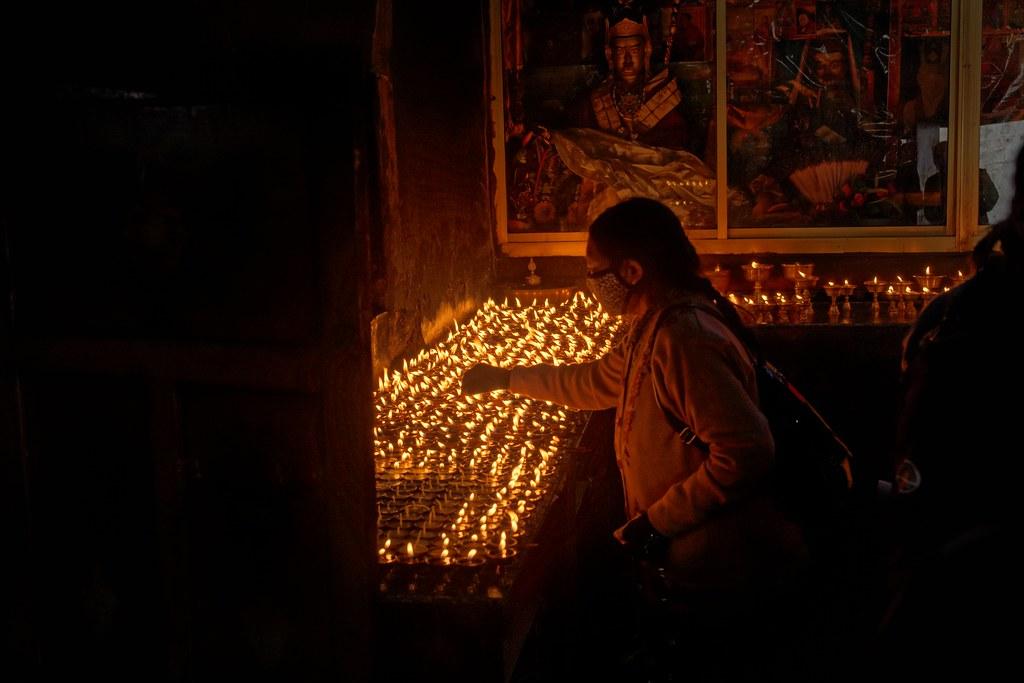In a world where the relentless pace of life often leaves us yearning for tranquility, meditation emerges as a beacon of calm, promising solace amidst chaos. Its benefits are extolled far and wide, from reducing stress to enhancing mental clarity. Yet, beneath the serene surface of this ancient practice lies a question that few dare to explore: Can meditation, revered for its healing powers, harbor hidden pitfalls for some individuals? As we delve into the complexities of the human mind, this article seeks to uncover the lesser-known facets of meditation, examining its potential risks and exploring why, for some, the path to inner peace might be fraught with unexpected challenges.
Exploring the Shadows: When Meditation Unveils Unwanted Emotions
In the quiet embrace of meditation, many seek solace and clarity. Yet, for some, this journey inward can unearth a Pandora’s box of unexpected emotions. The stillness that meditation offers can act as a mirror, reflecting not only the serene but also the shadowed corners of our psyche. This process can bring suppressed emotions such as anxiety, sadness, or anger to the surface, challenging the meditator to confront feelings they might not be prepared to handle. While this unveiling can be a path to healing, it can also feel overwhelming without the right support.
- Heightened Awareness: Meditation increases our sensitivity to emotional undercurrents, making us more attuned to feelings we’ve long ignored.
- Repressed Memories: The practice can bring forth memories that were buried, leading to unexpected emotional responses.
- Inner Conflict: Facing these emotions without guidance can create a tug-of-war between our conscious desires and subconscious fears.
For some individuals, especially those with a history of trauma or unresolved emotional issues, the experience might feel more intense. It’s crucial to approach meditation with an understanding that while it is a tool for peace, it can also be a catalyst for confronting the unresolved.
The Silent Struggle: Mental Health Risks Associated with Meditation
While meditation is often heralded as a pathway to inner peace and clarity, it is essential to acknowledge that it may not be a one-size-fits-all solution. For some individuals, the journey inward can inadvertently uncover suppressed emotions and psychological distress, leading to unexpected mental health challenges. The potential risks associated with meditation include:
- Emotional Overload: Intense meditation sessions can sometimes evoke buried emotions, causing distress rather than relief.
- Dissociation: Some practitioners may experience a sense of detachment from reality, blurring the lines between the self and the external world.
- Increased Anxiety: Rather than alleviating stress, certain meditation practices might amplify feelings of anxiety, especially in those with pre-existing conditions.
It is crucial for individuals to approach meditation with awareness and to consider professional guidance if they encounter adverse effects. Understanding personal limits and the potential for these hidden pitfalls can make the practice more beneficial and safe.

Tailoring Tranquility: Personalizing Meditation Practices for Safety
In the realm of meditation, the pursuit of inner peace is often seen as universal. However, the path to tranquility can be as unique as the individuals treading it. For some, certain meditation practices might inadvertently trigger discomfort or unease. To ensure a safe and enriching experience, it’s crucial to tailor meditation techniques to align with personal needs and sensitivities.
- Identify Triggers: Some meditation practices can unintentionally surface past traumas or emotional distress. Identifying these triggers can help in choosing the right practice.
- Modify Techniques: Adjusting the duration or intensity of meditation can prevent overwhelming sensations. Shorter sessions or focusing on gentle breathing can be beneficial.
- Seek Guidance: Working with a qualified instructor can provide personalized guidance, ensuring that meditation practices are adapted to support rather than unsettle.
Personalization in meditation isn’t just about comfort; it’s about creating a safe space for introspection and growth. By listening to our inner responses and respecting our boundaries, meditation can be a harmonious and healing journey.

Guiding the Journey: Expert Recommendations for Safe Meditation Practices
When exploring the serene path of meditation, it’s crucial to approach it with mindfulness and awareness. Expert recommendations emphasize the importance of a guided journey, particularly for beginners. While meditation is generally safe and beneficial, certain practices may not suit everyone. Here are some guidelines to ensure a safe experience:
- Seek Professional Guidance: Consider starting with a certified meditation instructor who can tailor techniques to your individual needs.
- Choose the Right Environment: Ensure your meditation space is calm and free from distractions to foster a supportive atmosphere.
- Be Mindful of Emotional Responses: Some meditation practices may bring up intense emotions. It’s important to acknowledge these feelings and seek support if needed.
- Start Slowly: Gradually increase the duration of your meditation sessions to avoid feeling overwhelmed.
By following these expert tips, you can cultivate a meditation practice that nurtures your well-being while minimizing potential risks.
Future Outlook
As we draw the curtains on our exploration of meditation’s potential pitfalls, it’s essential to remember that every practice, no matter how ancient or revered, can cast shadows as well as light. For some, the serene path of meditation may lead to unexpected challenges, revealing hidden depths and uncharted territories within the mind. Just as a river’s course is shaped by the landscape it traverses, so too is meditation shaped by the unique contours of each individual’s psyche.
In this journey, awareness and discernment become our trusted guides. It is through understanding and acknowledging these complexities that we can navigate the meditative experience safely, tailoring it to suit our personal needs and limitations. As we continue to delve into the mysteries of the mind, let us approach meditation with both an open heart and a cautious mind, embracing its potential while respecting its power.
Ultimately, whether meditation serves as a balm or a challenge, it remains a deeply personal journey, inviting us to engage with the profound intricacies of our own consciousness. In this space of exploration, may we find not only answers but also questions that lead us to a deeper understanding of ourselves and the world around us.
